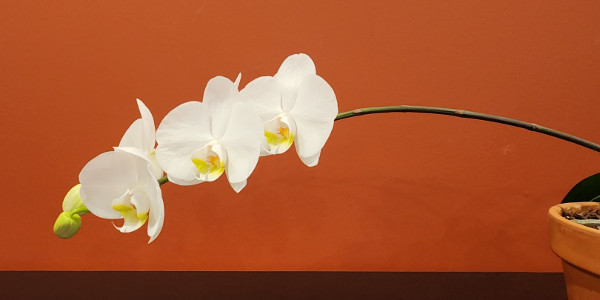Would a permanent sunset be just as beautiful?
Probably to avoid doing homework, during my freshman year of college my roommate and I commonly stayed up half the night in earnest but otiose discussions. One that I particularly remember was a heated debate about whether a permanent sunset would be as beautiful as a transient one. I know that I passionately argued my position, though I can’t recall which side I took. Of course it really didn’t matter—the debate itself was the point.
After we’d pretty much exhausted that topic at about four in the morning, I still wasn’t ready to quit. So in my usual provocative style I tried to further wind up my roommate by asking him why he thought that a sunset was beautiful anyway? Why couldn’t it be seen as an ugly, oozing orange sore? What precisely made it beautiful, and who decided? That kept us busy until the sun came up. Fortunately at that point we were both so tired that we didn’t initiate a similar discussion about the beauty of sunrises; we just went to sleep.
I think of the sunset debate just now because for the first time in at least ten years our orchid, a white phalaenopsis, is in bloom. And by anyone’s standards it is beautiful indeed. The spike started growing, exhibiting tentative buds, just before we left for the UK. I was sure the show would be over by the time we returned home a month later. But joyfully, the spike had merely grown by another few inches and the tentative buds were slightly less tentative. Over the following six weeks growth continued in slo-mo. Now we’re in the midst of a glorious profusion of milky white blooms with delicate dustings of lemon and chartreuse toward their centers. Unlike many other plants, orchids seem to hold their flowers for a long time, though not quite approaching the arrested sunset of freshman year. Hmm… What if they indeed lasted forever, like plastic orchids? Would I still regard them as so beautiful? I guess my answer should depend on which side of the sunset debate I was on, but as I said, I can’t recall.
In contrast to the long-blooming phalaenopsis, there’s the Amorphophallus titanum, native to Sumatra. It’s more commonly known as the “corpse plant” because the flower, that blooms only once every 7 to 10 years, emits a ghastly odor. (Given the smell, its infrequent blooming is probably a good thing!) Very strangely, despite the rarity of flowering, the huge blossom (it grows to a preposterous ten feet) lasts a mere 12 hours before it wilts. I suppose whoever took the side of the beauty of transience in the sunset debate would have to argue that the bloom must be extremely beautiful, no matter how bad it smelled.
It occurs to me that the transient-permanent debate could be brought to bear on human life. That is, would life be just as beautiful if we were immortal? There’s an extensive collection of stories and legends describing someone who, through a granted wish or fancy science or striking a deal with the devil, becomes immortal. Certainly sounds like a great option. But, according to virtually all these stories, as the years-or centuries–go by it becomes clear that the immortal one is not a happy camper. They have no sense of urgency, no impetus to accomplish anything, and just sort of hang around, decade after decade. And why not–they have all the time in the world. Maybe such a life would indeed be ultimately empty and undesirable, but my suspicion has always been that such stories are told mainly as a rationalization, to comfort the reader about the inevitability of death.
So given that I was quite happy to take either side in a freshman debate about transience and beauty, how do I really feel about whether an immortal life could be a happy one? Well, I don’t know. I can see how a perpetual sunset might become a bit stale. On the other hand, mere hours of enjoyment of the flowering Amorphophallus titanum, even if the blossom were incredibly beautiful and didn’t stink, would be too brief to be really satisfying. So maybe our orchid is a good compromise—it doesn’t last a boring forever, but hangs around long enough so that we can really drink in its beauty. Perhaps we evolved–or were designed–to last 80 or 90 years as the perfect compromise between an endless sunset and the corpse plant’s brief blossom.

